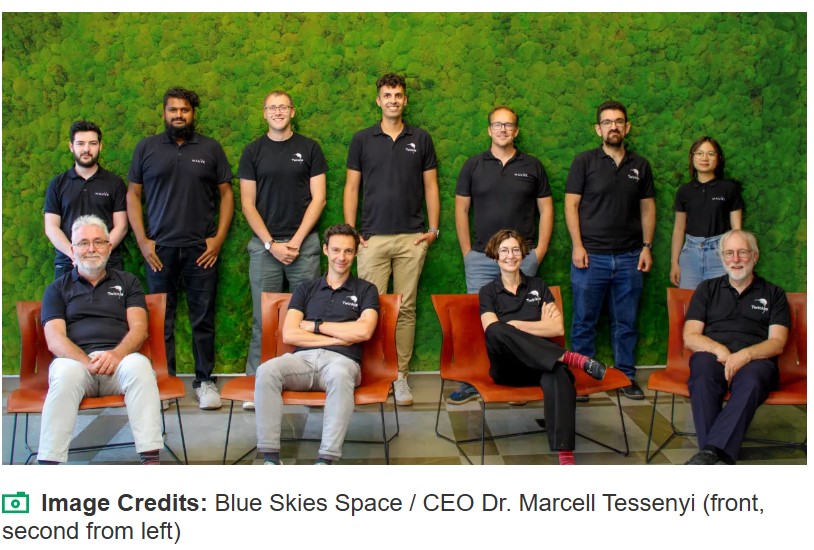Space StartUp to sell astronomy Data as a Service
A U.K. space startup has revealed plans to launch its first satellite as part of SpaceX’s rideshare program and sell Astronomy Data ‘as a service’.
This will usher “new era of space research,” the company claimed where astronomy data is collected, packaged and sold “as a service.”
SpaceX’s Transporter 15 program next year will use a Falcon 9 rocket to transport payloads from third-party companies into space.
The company has raised around $6.5 million in total since its inception, roughly two-thirds of which has come from equity investments from a handful of investors including U.K. seed fund SFC Capital and Japan’s Sparx Group.
The remainder has come in grants, including funds from Europe’s Horizon R&D program.
Commercialize the cosmos
Founded in 2014, Blue Skies Space is the handiwork of a team of academics, including Tessenyi, who has a doctorate in astrophysics from University College London (UCL).
“We spent many years engaging with the global science community, validating our model and better understanding their science and data needs,” Tessenyi said.
“A lot has happened within the business to enable the launch of the Mauve, but also ‘new space’ drastically transformed the space ecosystem over the past 10 years, during which we have been able to find the right manufacturing partners and team members to implement our vision.”
Rather than building its own satellites, Blue Skies outsourced the engineering work to more experienced manufacturers, including Hungary’s C3S and Dutch company Isispace, with Blue Skies setting and converting the scientific requirements into technical specifications. This includes a 13cm telescope and a UV-visible spectrometer.
The satellite, which is designed to complement data provided by existing astronomical efforts such as that of the famed Hubble Telescope, will be focused on stellar spectroscopy (the spectrum of light emitted by stars), which can convey information such as star composition, temperature, density, mass, distance, luminosity and more..
Among the proposed scientific use cases include the study of stellar flares, looking at their frequency, energy distribution and physical properties; the remit may also cover magnetic activity of exoplanet hosts to reveal the effects of UV radiation on photochemistry.
Many companies are gathering and monetizing space data, many of these are either ground-based telescopes looking at deep space, or satellites providing observation data about Earth.
Blue Skies is differentiating by gathering data about space from space,and making it easy to access through a subscription-based membership model.
This program already includes researchers from Boston University and the National Astronomical Observatory of Japan, which signed up prior to launch to help shape the program design — including decisions around where the Mauve satellite should be looking in space, and for how long.
“No private company is providing astronomy data as a service; we will be the first,” Tessenyi said. “We bring new science satellites and datasets to the community and make this available to anyone who wants to join. This new approach really gives the science community greater agility and complements the large, high-capability and high-demand facilities typically delivered by government agencies.”
The company has raised around $6.5 million in total since its inception, roughly two-thirds of which has come from equity investments from a handful of investors including U.K. seed fund SFC Capital and Japan’s Sparx Group.
The remainder has come in grants, including funds from Europe’s Horizon R&D program.
